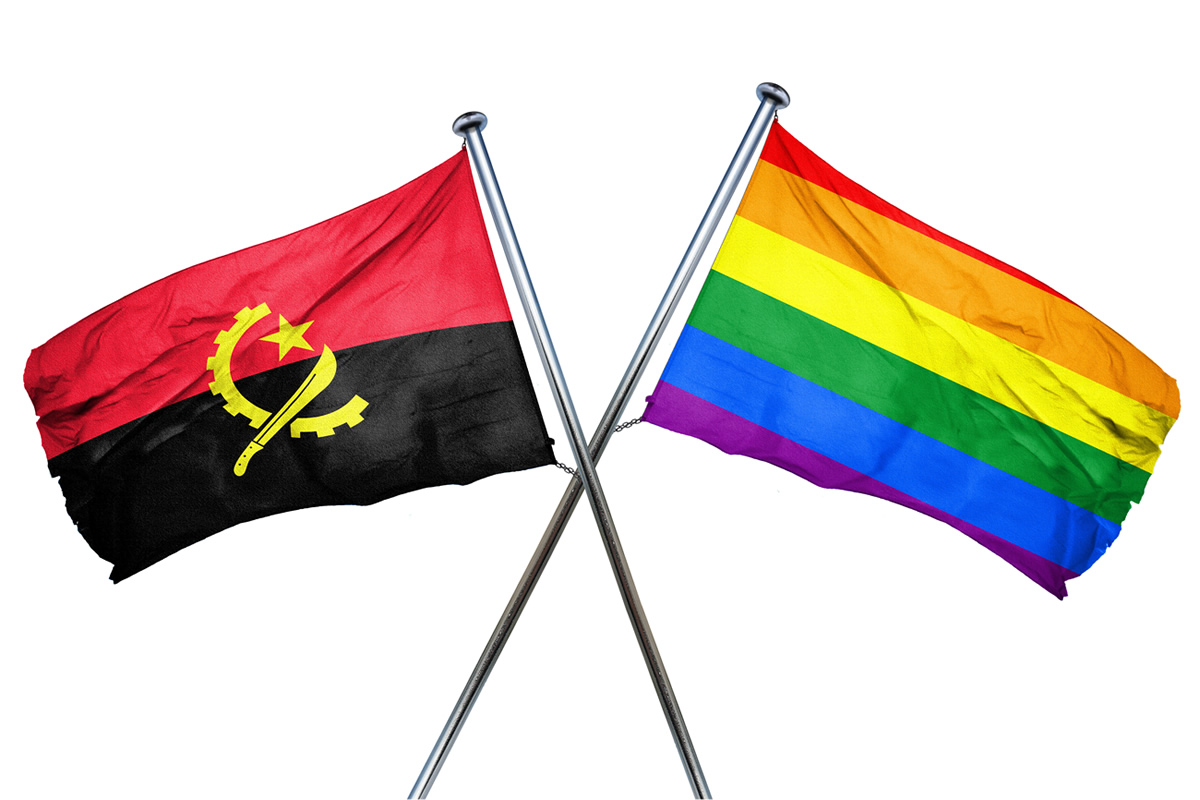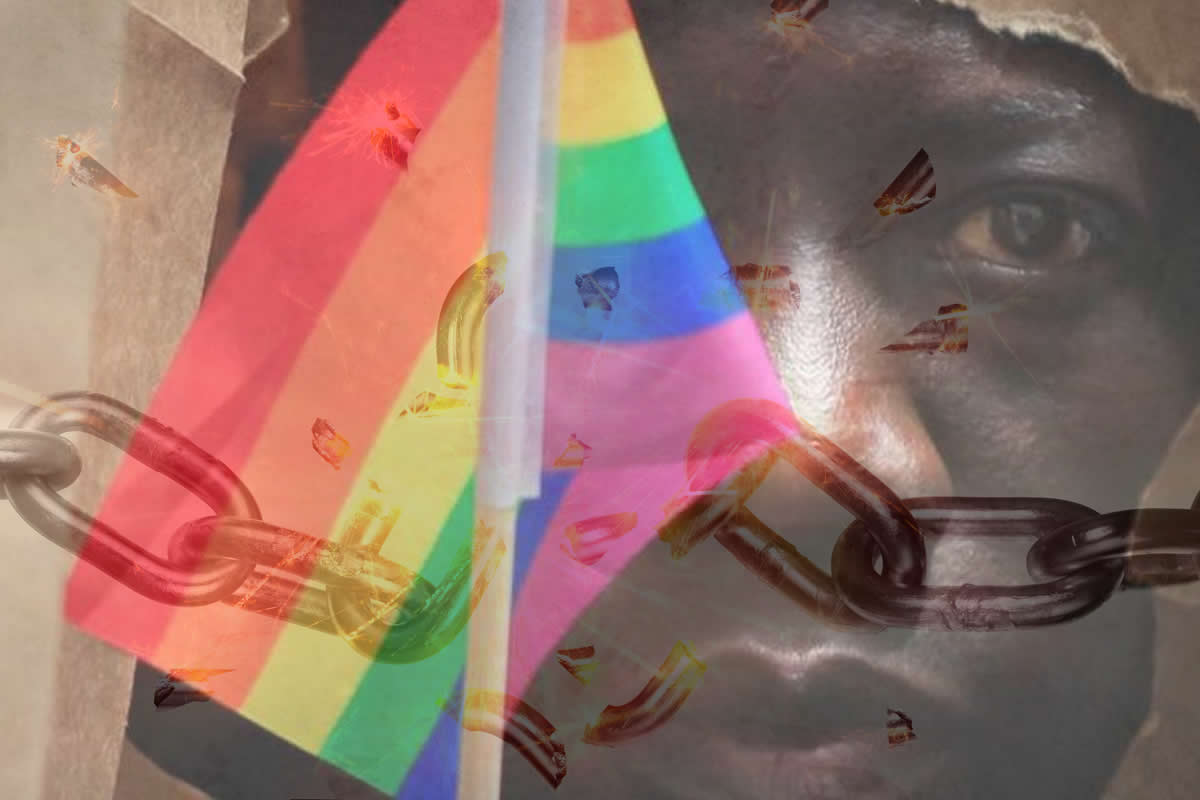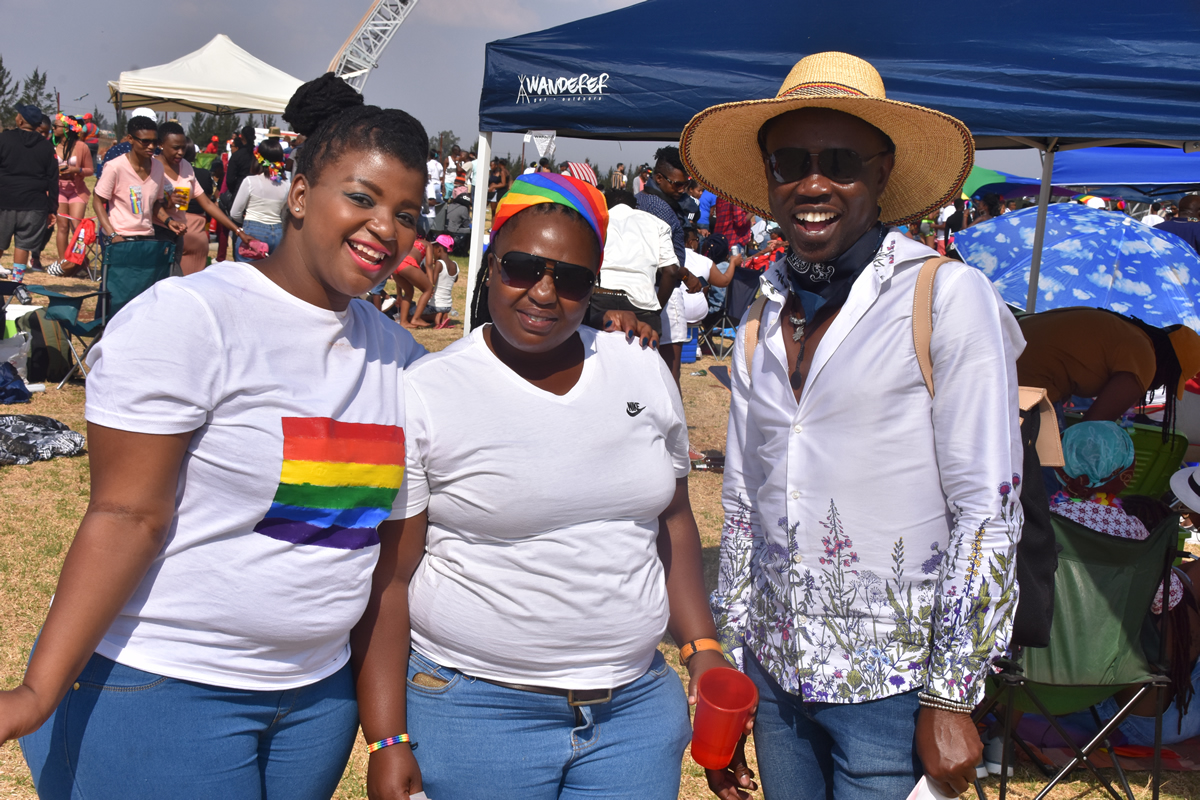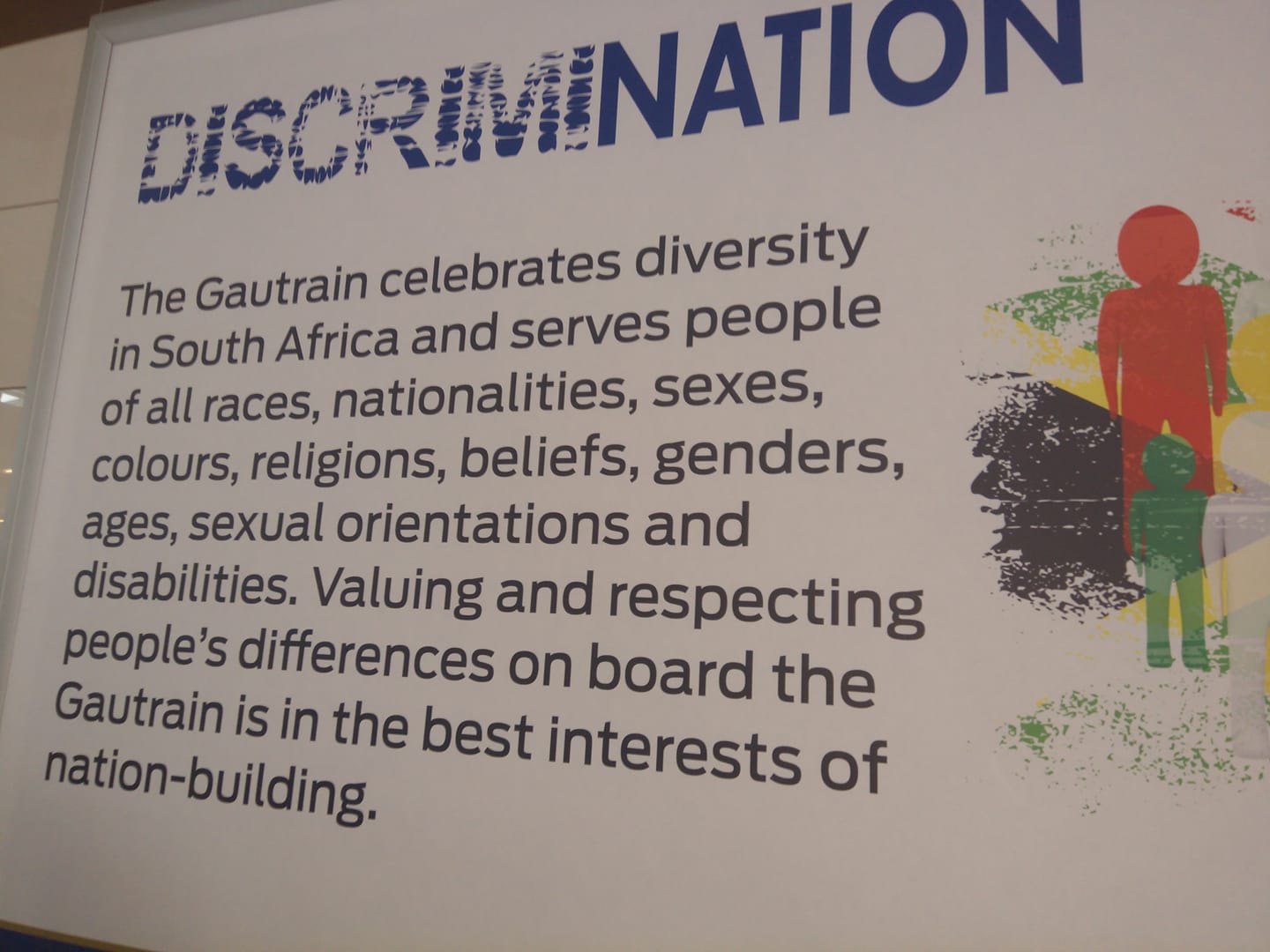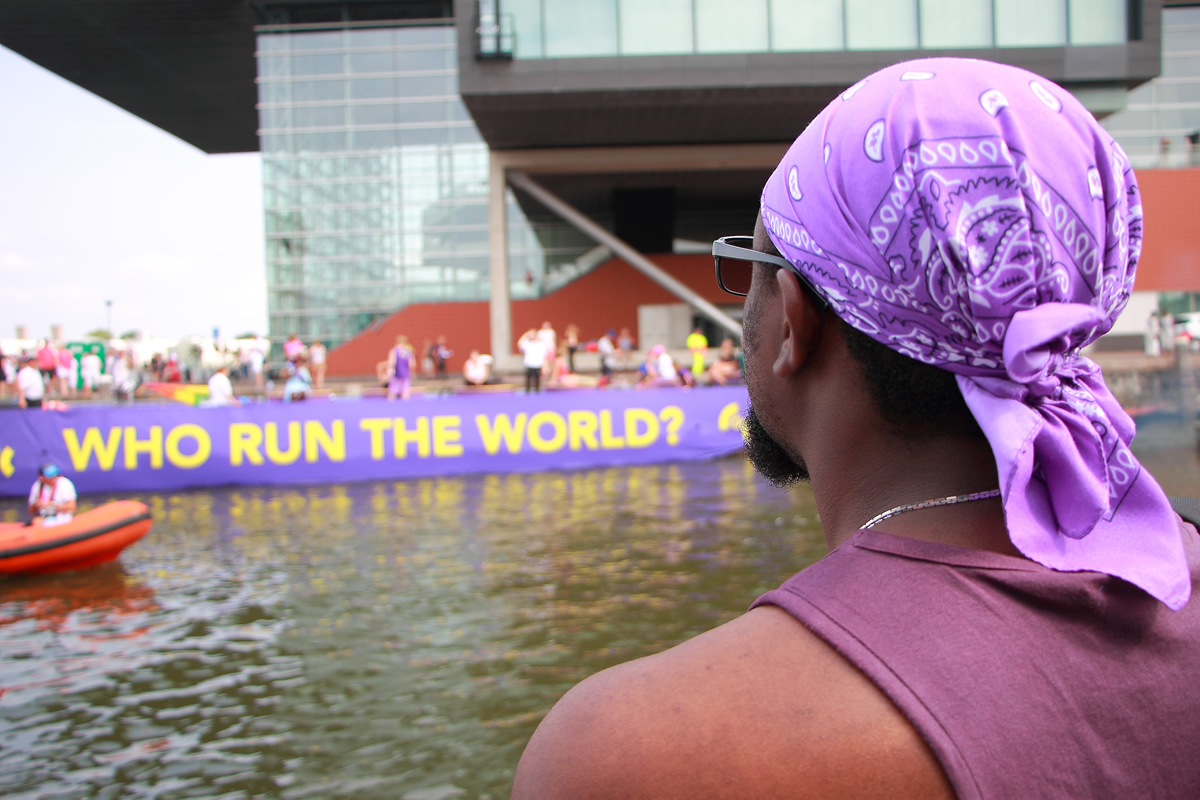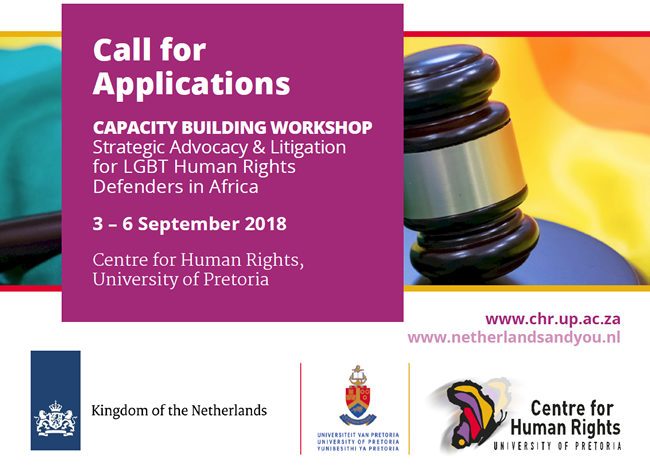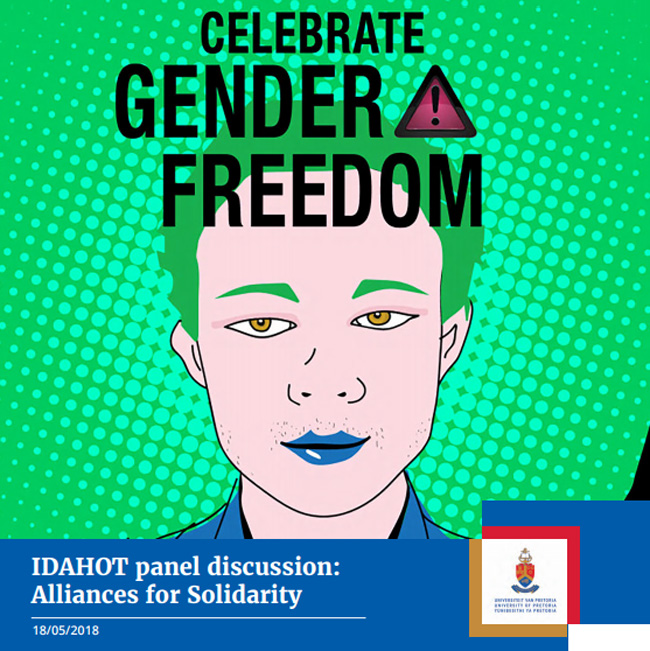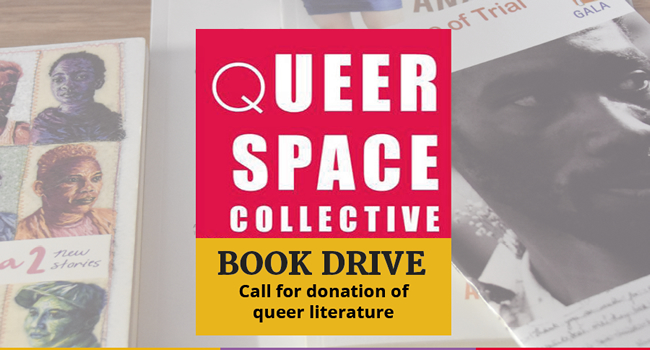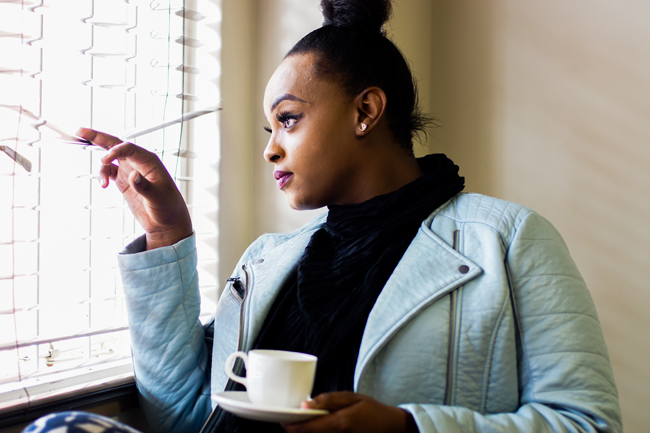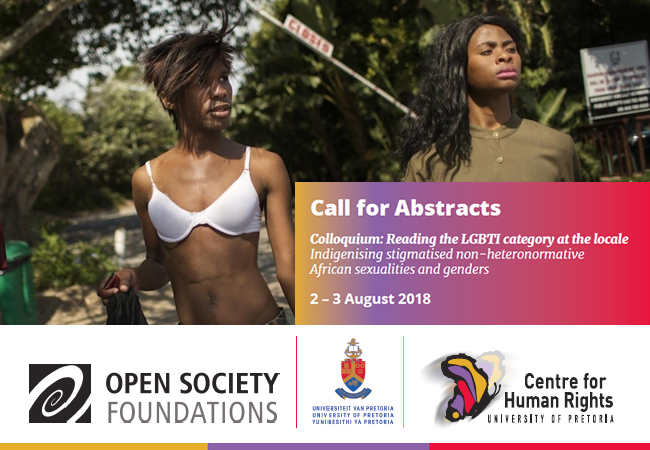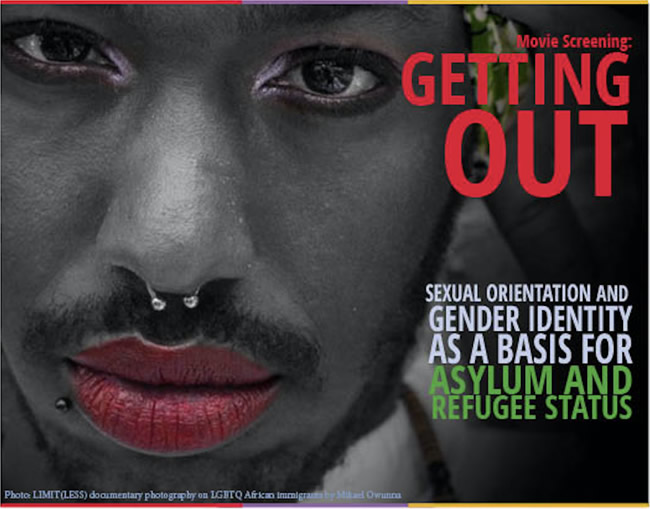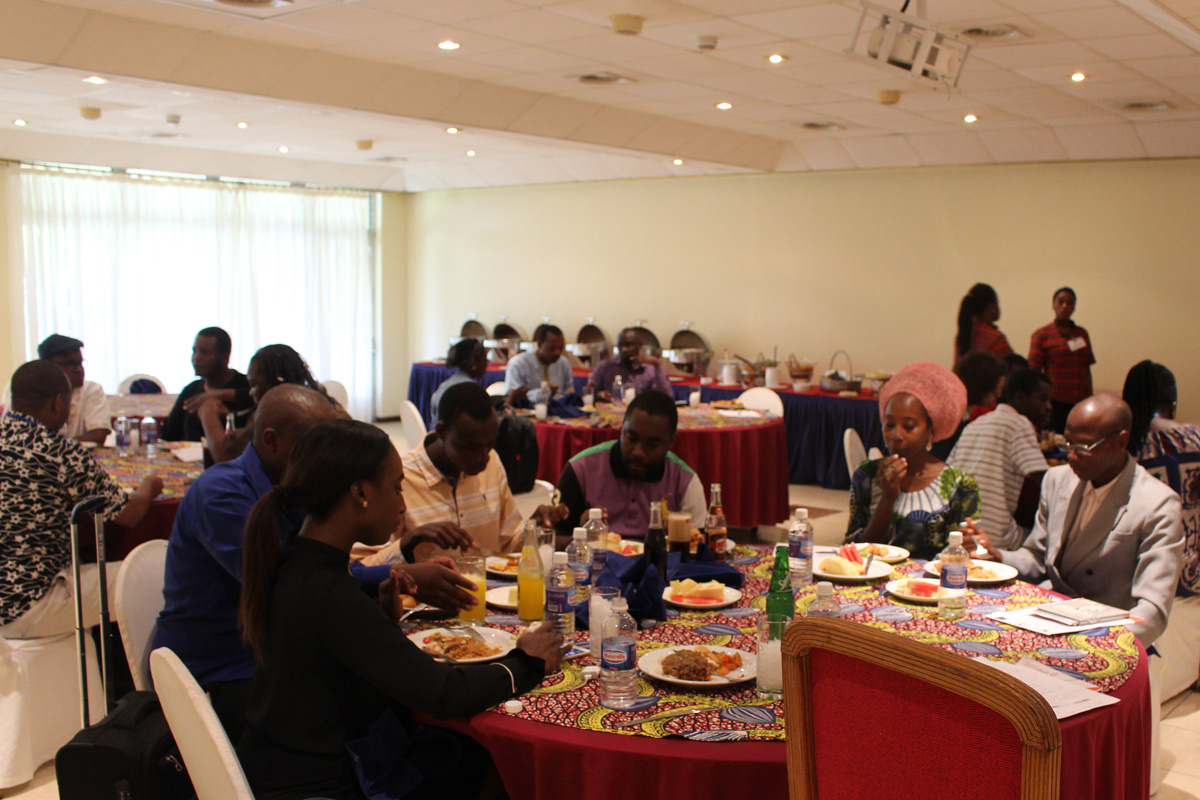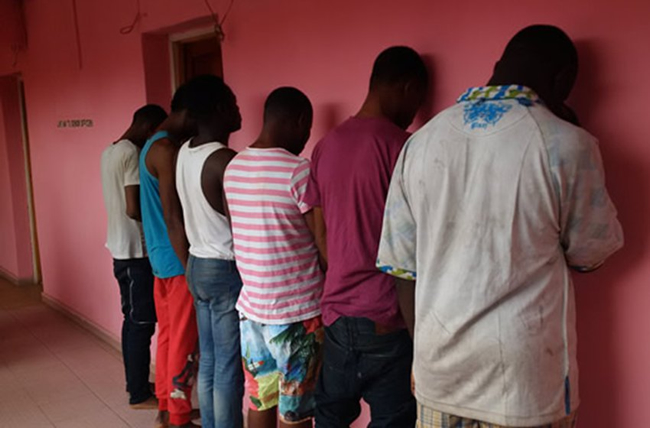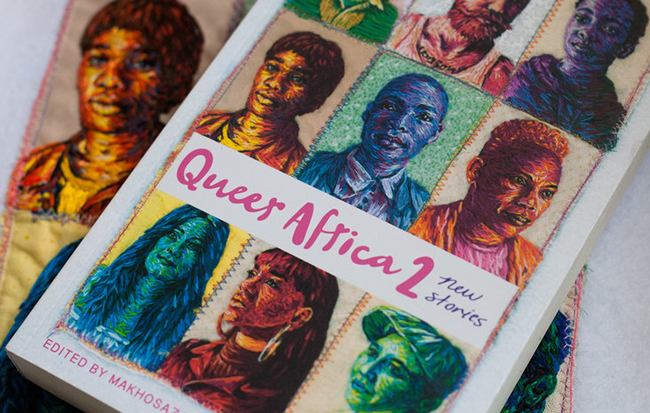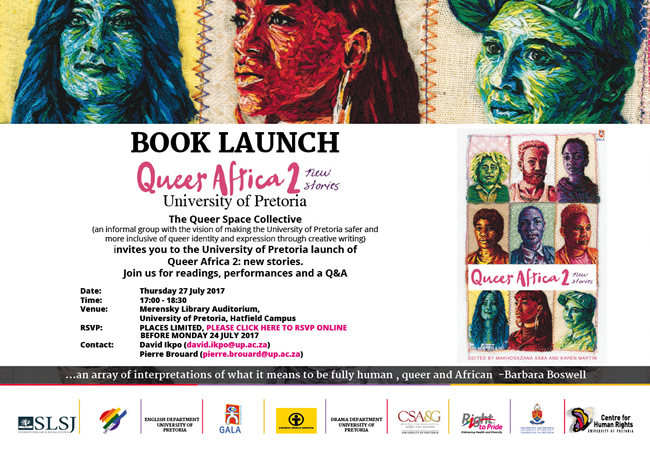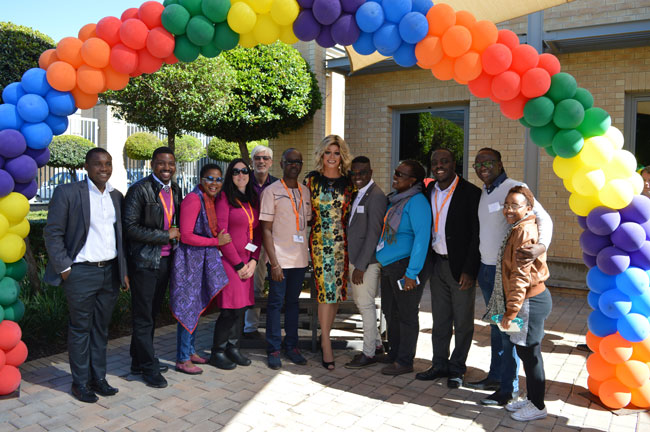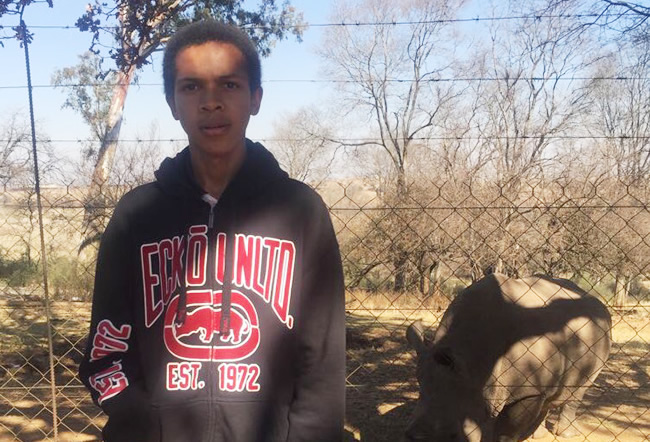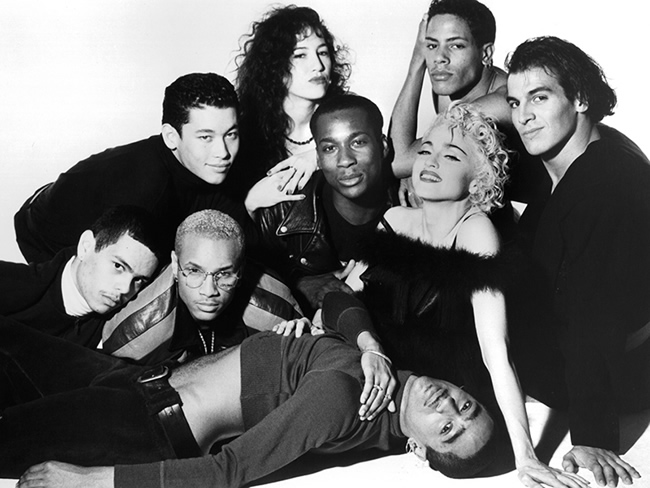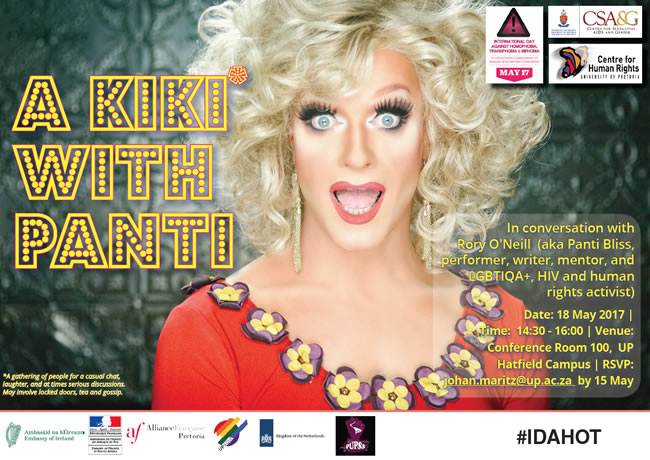- Details
(By Prof Frans Viljoen)
Angola has decriminalised consensual same-sex acts between adults in private.
An erstwhile Portuguese colony, Angola inherited an ancient colonial statute – dating back to 1886 – that criminalised “indecent acts” and persons habitually engaging in “acts against nature”. These formulations have widely been interpreted as a ban on homosexual conduct.
- Details
The Centre for Human Rights (the Centre) congratulates the government, parliament and people of Angola, for the brave steps taken, through its judicial reform programme, towards the decriminalisation of ‘habitual unnatural vices’, into which consensual adult same-sex sexual conduct was read. The Centre also expresses its pleasure towards the criminalisation of crimes based on discrimination including prohibiting crimes based on discrimination based on sexual orientation. To further galvanise the reforms, employment and service discrimination based on sexual orientation is also now illegal. These are major achievements towards respecting and promoting the rights of all citizens of Angola including sexual and gender minorities.
- Details
The Sexual Orientation, Gender Identity and Expression and Sex Characteristics (SOGIESC) Unit continues to celebrate LGBTIQ+ Africans who have bravely served and are still bravely serving their communities in various capacities worthy of note.
- Details
On Saturday 29 September 2018 the annual SOWETO Pride was held at GOG Gardens in Soweto. Geoffrey Ogwaro and William Aseka from the SOGIE Unit of the Centre for Human Rights participated and took the opportunity to conduct informal information sessions with attendees and distribute brochures on the Equality Courts of South Africa. The SOGIE unit encourages persons discriminated against on the basis of their sexual orientation and/or gender identity to seek justice from the Equality Court as one of the uniquely different judicial institutions that tries to make access to justice easier for historically and socially marginalised groups. The Equality Courts are housed in most Magistrate Courts as well as some High Courts around South Africa. More information on Equality Courts can be accessed from the Department of Justice and Constitutional Development website http://www.justice.gov.za/EQCact/eqc_faq.html
- Details
Geoffrey Ogwaro
Centre for Human Rights, University of Pretoria
2 October 2018
Recently, as I was commuting on South Africa’s Gautrain, an urban passenger train transport system that connects several economic and residential hubs in the county’s cosmopolitan province of Gauteng, I came across a sign on the wall of the station that read: ‘The Gautrain celebrates diversity in South Africa and serves people of all races, nationalities, sexes, colours, religions, beliefs, genders, ages, sexual orientations, and disabilities. Valuing and respecting people’s differences on board the Gautrain is in the best interests of nation-building.’
- Details
An epistolary report on the Building Bridges Program, Amsterdam 2018
Dear Pink Africa,
We have to act. We have to act fast. Lives, our lives are on the line. I have never felt greater urgency than I feel now. I have just returned from Amsterdam and I brought you some words, some dreams.
I was selected to participate in the Building Bridges Program from 31 July to 5 August 2018. Annually, the program seeks to connect activists with inspiration, needs with support, questions with answers, doubt with confirmations and to bring together stories from across the sphere of the protection and promotion of human rights of sexual and gender minorities globally. This year’s theme was ‘LGBT and Religion and how to overcome by building bridges with allies’. I joined 11 other African, Middle Eastern and Northern African activists in the world’s most dynamic rainbow city, Amsterdam.
- Details
Today Africa, at least parts of it, celebrates the legacy of Nelson Mandela. He was a ‘great’ anti-apartheid activist, lawyer and South Africa’s first post-apartheid president.
Here in South Africa, I have navigated through some multi-ethnic and multi-racial social spaces where the conversation of ‘Who is Nelson Mandela?’ came up. I have a growing sense of that there are mixed feelings about him, what he represents and the sustainability of his legacy. It is difficult to completely grasp the emotional context of the ‘phenomenon’ that is Nelson Mandela.
- Details
The Centre for Human Rights, Faculty of Law, University of Pretoria with the support of the Embassy of the Kingdom of the Netherlands, cordially invites you to apply for the Capacity Building Workshop on Strategic Advocacy & Litigation targeted at the promotion and protection of the human rights of lesbians, gay, bisexual, and transgender persons in Africa.
- Details
Please join us for a panel discussion in celebration of the International Day Against Homophobia, Transphobia & Biphobia (IDAHOT). The theme for this year, Alliances for Solidarity, is a welcome reminder of the need for solidarity within the communities of sexual and gender minorities, as the rights of one specific group cannot be solidly secured if the rights of other groups are left unchallenged. ![]() Download this invitation
Download this invitation
- Details
The Queer Space Collective calls on you to participate in fostering the creation, telling, re-telling, archiving and accessibility of queer books and stories by donating used or brand new queer literature to the Queer Library for use by members of the University of Pretoria community.
- Details
In commemorating the 15th anniversary of the Protocol to the African Charter on Human and Peoples Rights on the Rights of Women in Africa (Maputo Protocol), the Centre for Human Rights, University of Pretoria, is developing a photo exhibition and short video on the theme ‘Transwomen are women’. The exhibition and video will focus on the strength of Article 1(k) of the Maputo Protocol which provides that 'Women means persons of female gender, including girls'.
- Details
The Centre for Human Rights, University of Pretoria, is convening a colloquium on 2 - 3 August 2018 and is calling for abstracts on non-heteronormative African sexualities and genders.
The colloquium has the following main themes:
- reading the LGBTI category at the African locale; and
- indigenising stigmatised non-heteronormative African sexualities and genders.
It is anticipated that papers presented at the colloquium will be reworked by authors with a view to their consideration for publication as chapters in an edited volume.
- Details
The Centre for Human Rights, Faculty of Law, University of Pretoria cordially invites you to a Panel discussion - Sexual Orientation and Gender Identity as a basis for asylum and refugee status.
- Details
On Saturday 4 November 2017, the Centre for Human Rights (Centre) in partnership with Iranti-org and SIPD -Uganda convened a panel discussion on intersex human rights in Banjul, The Gambia. The event came on the side-lines of the 61st ordinary session of the African Commission on Human and Peoples’ Rights (African Commission) which is taking place from 1-15 November. This was monumental considering that the African Commission is celebrating its 30 years anniversary and achievements ever-since it became operational 30 years ago.
- Details
The Centre for Human Rights works for the improvement of the human rights of minorities - including sexual minorities - and other disadvantaged or marginalised persons or groups across the continent.
- Details
The Centre for Human Rights calls for the immediate release of the 42 persons who were unjustly arrested by law enforcement agents at the HIV awareness training for sexual and gender minorities which was held at the Vincent Hotel, Weigh Bridge in Owode Onirin, Lagos State, Nigeria on Saturday 29 July 2017.![]() Download this statement
Download this statement
- Details
On Thursday 27 July 2017, Queer Africa 2: New stories made its grand entry into the University of Pretoria(UP) community at its well-attended book launch organised by the Queer Space Collective (QSC) at the Library Auditorium, University of Pretoria, Hatfield Campus. This was preceding earlier launches at the University of Witwatersrand, Cape Town and Oslo.
The force behind bringing Queer Africa 2: New stories home to UP, was the QSC’s vision to make the UP safer and more inclusive of queer identity and expression through creative writing and expressions. The QSC is an informal group comprising of individuals mostly from ten organisations representative of both themselves and their organisations. These organisations include: Student for Law and Social Justice; Up and Out; English Department and Drama Department of the University of Pretoria; Church World Services; Right to Care; Gay and Lesbian Memory in Action(GALA); Centre for Sexuality Aids and Gender; and the Centre for Human Rights. These organisations among other things engage actively at the core of their work with the issues of queerness and sexual and gender minority issues. Interestingly, individual membership of the QSC cuts across persons of various ages, races, sexual orientation, gender identities, nationalities and backgrounds working together through interdependence amongst members and member organisations to storm UP, to charm the UP space with the saturating consciousness of the need for equality, safety and inclusivity. The launch of Queer Africa 2: new stories is the Queer Space Collective’s maiden event.
- Details
The Queer Space Collective (an informal group with the vision of making the University of Pretoria safer and more inclusive of queer identity and expression through creative writing) invites you to the University of Pretoria launch of Queer Africa 2: New Stories. Join us for readings, performances and a Q&A session.
Queer Africa 2: New Stories is a ground breaking collection featuring twenty-six masterpieces from eight countries – Kenya, Nigeria, Rwanda, Sierra Leone, Somalia, South Africa, Uganda, and the United States of America. The plots of all twenty-six stories are separately and skilfully woven to reflect a vast range of human emotions and experiences that abound in the lives of Africans of all shades and colour at home and abroad who own the queer identity.
Date: Thursday 27 July 2017
Time: 17:00 - 18:30
Venue: Merensky Library Auditorium, University of Pretoria, Hatfield Campus
RSVP: PLACES LIMITED, PLEASE CLICK HERE TO RSVP ONLINE BEFORE MONDAY 24 JULY 2017
Contact: Mr David Ikpo ( david.ikpo@up.ac.za) / Pierre Brouard ( pierre.brouard@up.ac.za)
- Details
Irish drag queen and LGBTI activist Rory O’Neill/ Panti Bliss launched the book Protecting the human rights of sexual minorities in contemporary Africa edited by Sylvie Namwase and Adrian Jjuuko. The launch took place on 17 May, the International Day Against Homophobia, Transphobia & Biphobia. The Embassy of the Netherlands, the Embassy of Ireland, HiVOS South Africa and the Centre for Human Rights partnered to organize a Rainbow Happy Hour and a round table discussion on that day.
- Details
An “icon” is a word that should never be thrown around lightly. An icon is defined as a person or thing regarded as a representative or symbol of something, or someone is very successful or admired. For example, Lionel Messi could be considered an “icon” of football, Michael Jordan for basketball, Muhammed Ali for boxing. These people are the first things that come to mind when one thinks of the particular sport they are involved in. They are icons. Icons are around to inspire.
- Details
Roughly above a week ago, I saw the documentary film Strike a pose. It investigates the lives and personal journeys of the seven male dancers that rocked the stage with Madonna on her Blonde Ambition World Tour in 1990, 25 years after the tour. The film is as old as 2016. But I doubt that this is piece will ever stop being relevant to the queer and HIV discourse. Perhaps there is a parallel. Perhaps there is not. But I see that gay men still need a safe space to flourish. I still see that gay men need each other- sometimes even more than we care to admit.
- Details
kiki* with Panti (*A gathering of people for a casual chat, laughter, and at times serious discussions. May involve locked doors, tea and gossip.) In conversation with Rory O'Neill (aka Panti Bliss, performer, writer, mentor, and LGBTIQA+, HIV and human rights activist)
Event Details
Date: Thursday 18 May 2017
Time: 14:30 - 16:00
Venue: Conference Room 100, UP (Hatfield Campus)
RSVP: johan.maritz@up.ac.za by 15 May 2017
GENEVA (3 May 2017) – The Government of Eritrea must free journalist Dawit Isaak who has been awarded a prestigious press freedom prize some 15 years after he was detained, a United Nations human rights expert says.
The Special Rapporteur on the situation of human rights in Eritrea, Sheila B. Keetharuth, is also calling on the authorities in Asmara to release unconditionally all others detained unlawfully.
“The Eritrean authorities should stop the practice of arrests and detention carried out without legal basis instantly,” said Ms. Keetharuth, welcoming the award of the UNESCO/Guillermo Cano World Press Freedom Prize 2017 to Mr. Isaak.
Dawit Isaak, who is 52 and a playwright, journalist and writer, moved to Sweden in 1987, where he later became a citizen. He returned to Eritrea only after independence in 1993 and was one of the founders and reporters of Setit, the first independent newspaper in the country.
Mr. Isaak was arrested in September 2001 during a political crackdown on the so-called G-15, a group of politicians, and journalists critical of Government policies. Some were detained and tortured, others disappeared. The last known sighting of Mr. Isaak was in 2005. His whereabouts now are unknown.
“The case of Mr. Isaak is emblematic of all those who have been subjected to enforced disappearances by the Government of Eritrea and remain unaccounted for,” said Ms. Keetharuth.
The Special Rapporteur recalled the findings of the UN Commission of Inquiry on Human Rights in Eritrea, which concluded that there were reasonable grounds to believe that Eritrean officials had committed crimes against humanity, including the crime of enforced disappearance, in a persistent, widespread and systematic manner since 1991.
“The Government of Eritrea has an obligation to urgently provide information on the fate and whereabouts of all those deprived of physical liberty. This would be a first and long-overdue indication that the Government is committed to rebuilding trust with the Eritrean people,” Ms. Keetharuth said.
“By allowing independent monitors immediate and unhindered access to all places of detention, official and unofficial, the Government would send a strong signal that it acknowledges human rights violations of the past, while taking steps to improve the situation on the ground now.
“The arrests of Dawit Isaak and his fellow journalists remain the most visible sign of repression of freedom of expression. The Eritrean authorities continue to stifle all forms of expression that could be perceived as critical of the Government and its policies,” she said.
Ms. Keetharuth reaffirmed that freedom of expression was a basic human right, and a free press one of the tenets of a democratic society, providing a valuable check on potential excesses by government.
Ms. Sheila B. Keetharuth (Mauritius) was appointed as the first Special Rapporteur on the situation of human rights in Eritrea in October 2012. From 2014 to 2016, she also served as a member of the Commission of Inquiry on Human Rights in Eritrea. Since May 2014, Ms. Keetharuth is an expert member of the Working Group on Extractive Industries, Environment and Human Rights Violations of the African Commission on Human and Peoples’ Rights. Until 2012, Ms. Keetharuth was the Executive Director of the Institute for Human Rights and Development in Africa in Banjul, The Gambia. She also worked with Amnesty International in Kampala, Uganda, and as a lawyer and broadcaster in Mauritius. In 2017, Ms. Keetharuth was awarded with the Outstanding Alumni Achievement Award by the University of Leicester, in recognition of her human rights work.
Special Rapporteurs are part of what is known as the Special Procedures of the Human Rights Council. Special Procedures, the largest body of independent experts in the UN Human Rights system, is the general name of the Council’s independent fact-finding and monitoring mechanisms that address either specific country situations or thematic issues in all parts of the world. Special Procedures’ experts work on a voluntary basis; they are not UN staff and do not receive a salary for their work. They are independent from any government or organization and serve in their individual capacity.
- See more at: http://www.ohchr.org/en/NewsEvents/Pages/DisplayNews.aspx?NewsID=21571&LangID=E#sthash.rFwqqqsA.dpuf- Details
It is not often that I identify with the race struggle. One does not become genuinely emotionally aware of it by reading Nelson Mandela’s Long Walk to Freedom, seeing Idris Elba’s rendition of the Madiba or the Sophia town play- although I believe, I came very close. ‘Race’ has not always my reality. I live here in South Africa but I do not pretend to understand it fully, yet. What I do share with this reality is the consciousness of a tedious journey of struggling towards acceptance. If this is anything to go by, the parallel realities of the several immutable features that attract pain and exclusion share the same ‘darkness’. These features, race inclusive, are gender and gender expression, sex and sexuality, disability at several levels, ethnicity and ancestry, social and political class, religious affiliations or the lack of it. There will really be no end to this list. But Freedom Day every year as the celebration of the first time that exclusion was formally stopped as regards the peoples’ right to vote is not only a symbol of so much but a parallel victory for every reality that smacks of discrimination and exclusion.
- Details
Dear Africa,
It’s not so often that I get to run my mind’s musings by you. This was worse when you were a slim black leather volume on a green plastic table in a quiet part of Port Harcourt. Now you are the world. You are the minds of countless dreamers, lovers, activists, writers and travellers that are quizzed and dare to quiz. What is this quiz, this mystery? Not knowing, not sharing, not seeing, not hearing and as such, neither bearing nor understanding.
Often, I think, prejudice is nourished not by hate but by distance. Of course, distance permits us perspective and some objectivity. But it is often to be blamed for skewed and blurry vision. More so, it is often difficult to understand that which is not engaged with. However, we do not all have the audacity or opportunity to engage even if we wanted to.
So we set out to bring the picture closer. The mysteries of wearing queer ‘shoes’ in Africa as Africans. The taste and textures of the throbbing and pangs . Let’s talk. Let’s write. Just us. Let’s study and listen so that seeing would be much clearer. Let’s walk, engage in no particular order but let’s resolve to attend to every chapter there is before we are done. The chapters on love and living, the places, scars, secrets , strengths, failures and victories, fears, faiths and realities of our lesbian, gay, bisexual, transgender, intersex, queer, asexual and non-binary selves.

